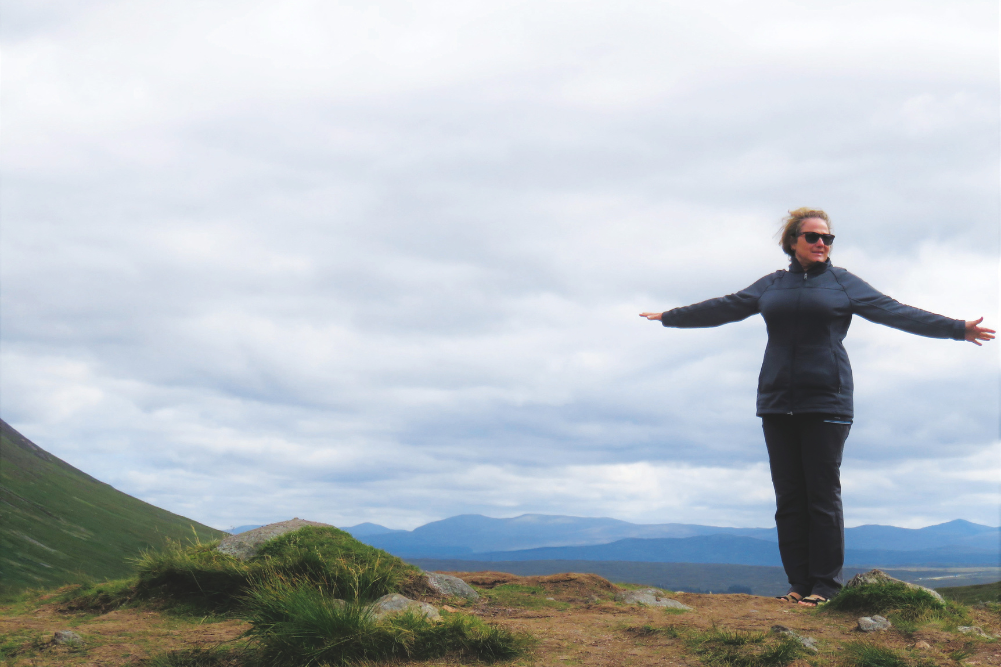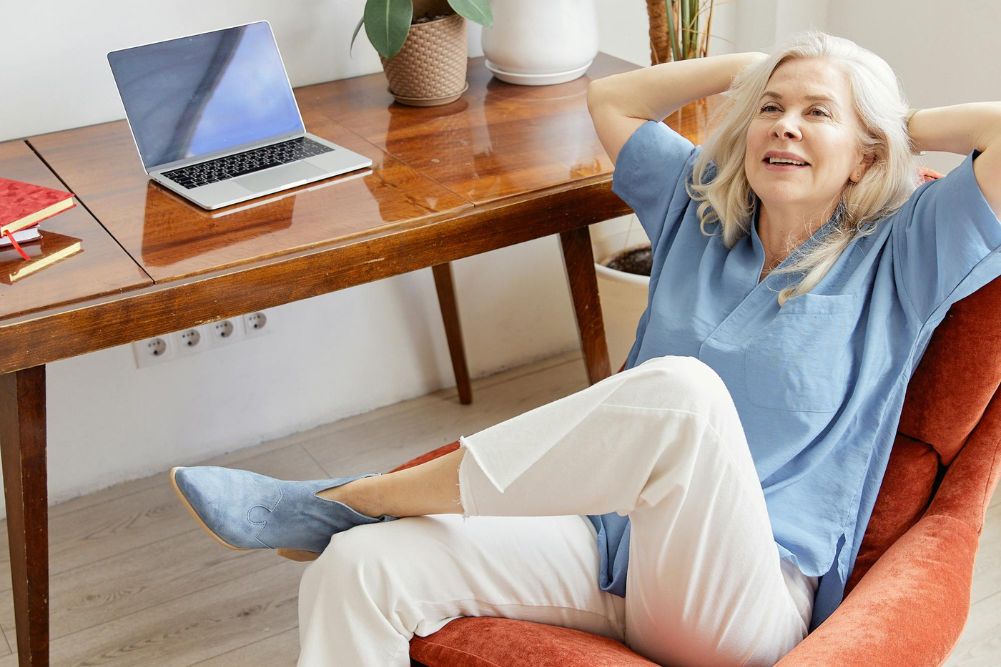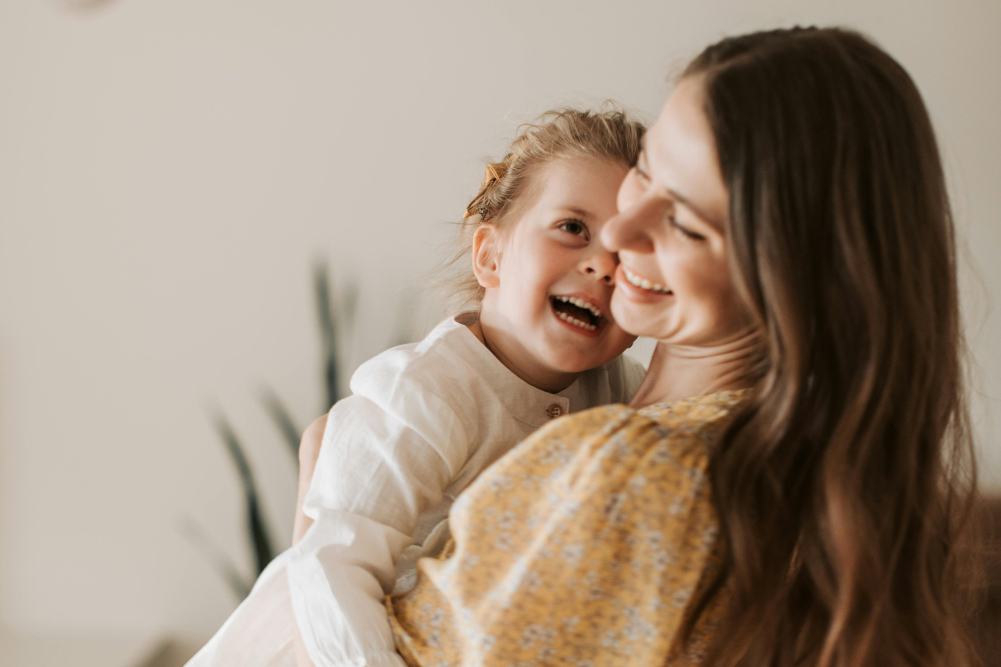Accidental Blessings
A holiday accident led to surgery, but recovery inspired mindful eating, self-care and Pilates, transforming health and wellbeing.
A midwinter break on an island in the Whitsundays was just what I needed. I worked hard in my business, and holidays were few and far between. But major abdominal surgery and two weeks in a hospital interstate were not supposed to be on the agenda.
White clouds drifted by the window of our small plane while endless turquoise water merged with a blue horizon below. After a bumpy landing, my husband grabbed our bags and broad grins filled our faces as we boarded the water taxi to our island home. After check-in, we decided to catch the sunset over the ocean. A short walk behind our villa led to the top of the island, giving us idyllic views of a tropical paradise.
As darkness settled, we headed back down the slope. The path was slippery with fallen leaves, and I stumbled, falling heavily onto one knee and twisting my ankle. I groaned in pain as I tried to stand, unable to put weight on either leg. My husband struggled to get me safely back to our room and, as we were both remedial therapists, we knew the routine for injuries: rest, ice and elevation. We settled in for a quiet first night.
Around midnight, waves of nausea woke me. With one knee badly swollen and my sprained ankle strapped, I crawled to the bathroom just in time. I vomited violently throughout the night, presuming the shock of the fall was the cause. However, the purging continued throughout the next day, so relentlessly that I stopped going back to bed and curled up with a blanket in the bathroom.
By the end of the second day, my stomach was bloated and sore to the touch. I was deliriously weak and dehydrated, even regurgitating water. By day three, there was no change. Sick bag in hand, we made the trek to the nearest town with an outpatient facility, where I was admitted for overnight observation. My husband went back to the island, planning to collect me in the morning.
Around midnight, my temperature spiked; my stomach had become more distended and painful. I was rushed to the nearest major hospital, two hours away, where scans revealed a ruptured bowel. Doctors performed emergency surgery, removing 30cm of my small intestine and effectively saving my life. I woke slowly, surrounded by white walls and ceilings and the beeping of medical machines. Instinctively, my hands went to my stomach, and I could feel a large bandage covering most of my abdomen. I no longer felt nauseous, so I allowed myself to drift in and out of sleep. It had been nearly four days since I had last slept properly.
It was another 10 days before I was allowed food; my stomach had to gurgle or my bowels pass wind before it was deemed safe to eat again. “It’s inexplicable,” said the surgeon on that first day. “Perhaps the fall set off a chain reaction.” My husband returned to Sydney for work and it felt very strange to be left alone in a hospital interstate.
The hospital’s dietitian said it would be 12 months before my digestive tract would be back to “normal”. During that time, I was advised to stay on a low-fibre, smooth-food diet. I was terrified of eating.
Observing the hospital’s routine of regular mealtimes and small, balanced meals allowed me to reflect on my health. I had tolerated years of abdominal upsets: irritable bowel symptoms, bloating and weight gain. I had worked as a massage therapist and run a small business for 25 years but my role had become all paperwork and people management, a role I didn’t enjoy. My unhappiness and stress controlled my thinking. I had no relationship with food, good or bad — I ate what I “should” because it was deemed “healthy”. I gave no thought to whether I enjoyed what I was eating.
I stuck to my “smooth food” diet strictly for the first year, terrified that something might go wrong. Intuitively, I began to practise mindful eating — eating with intention and attention. Being present and focused when I ate built an awareness of how I felt after eating, physically and emotionally.
I discovered feelings that had stopped me from nourishing myself; I had an over-developed sense of responsibility for other people’s health, but had ignored my own. Could I allow my own health to be as important as my clients? Having a second chance to care for my body, I began to treat food as more than fuel; it became a love affair with my soul. I was nourishing every aspect of myself.
One year after the accident I finished my Pilates teacher training; I was only three months into the one-year course when I had the fall. I never imagined I would ever get back into it, but watching my body heal, as well as listening to its responses to food and exercise, gave me a massive amount of respect for its innate capacity to recover. I sold my business two years later.
Pilates philosophy is all about strengthening your core. I used to consider that purely physical but my renewed respect for my body and my deeper connection with nourishing myself added a wonderful three-dimensional aspect to the exercise. I get a huge amount of satisfaction from teaching Pilates, helping people strengthen their core and develop a mind–body connection that feeds their whole being.
The fall and subsequent operation were such a blessing in disguise. My detachment from food was indicative of how detached I was from my inner self. I now eat for enjoyment and nourishment; it fuels my body, soul and spirit.








